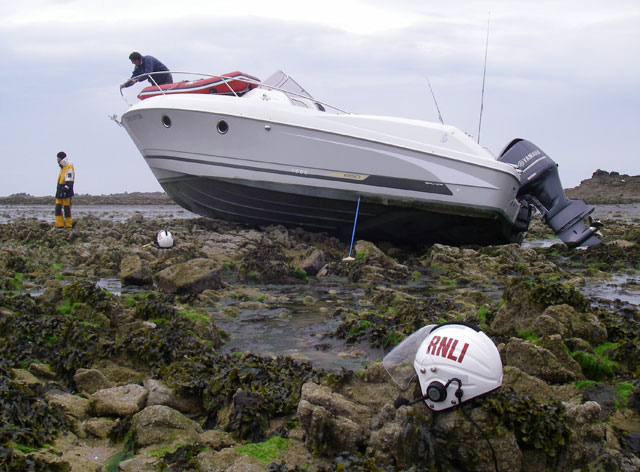RNLI reveals leisure boating rescue figures
Over half of RNLI lifeboat launches in 2011 were to assist leisure boaters, the charity's figures reveal
2011 saw RNLI lifeboats launch 8,905 times around the coast of the UK and Ireland, rescuing 7,976 people. Last year was the second busiest for launches according to RNLI records. The 4,800 dedicated lifeboat crew – 95 per cent of whom volunteer their time to the charity – spent a collective 203,000 hours at sea and are on-call 24/7. Over half (51 per cent) of all launches were to people at sea for fun. Launches to sail pleasure craft rose slightly from 1,481 in 2010 to 1,557 in 2011, an increase of 5 per cent. There were also slightly more launches to manual pleasure craft, up from 974 in 2010 to 1,070 in 2011. Meanwhile, launches to powered pleasure craft fell from 2,178 in 2010 to 1,934 in 2011, a decrease of 11 per cent. Machinery failure was the most common cause for rescue, with 1,641 of all launches responding to vessels with mechanical problems.
Over half (51 per cent) of all launches were to people at sea for fun. Launches to sail pleasure craft rose slightly from 1,481 in 2010 to 1,557 in 2011, an increase of 5 per cent. There were also slightly more launches to manual pleasure craft, up from 974 in 2010 to 1,070 in 2011. Meanwhile, launches to powered pleasure craft fell from 2,178 in 2010 to 1,934 in 2011, a decrease of 11 per cent. Machinery failure was the most common cause for rescue, with 1,641 of all launches responding to vessels with mechanical problems.
With leisure craft consistently accounting for such a significant proportion of launches, the charity is reminding boaters of some key sea safety advice. Adam Wooler, Head of Coastal Safety and Research says: ‘Don’t let a mishap ruin your day afloat – before you set off make sure you check your equipment, carry spares and have some way to call for help. If you want advice on how to stay safe at sea, then why not book one of our Advice Onboard sessions (formally SEA Check) – it’s a free, friendly and confidential service that’s neither a test nor an inspection and there is no pass or fail. Conducted by one of the charity’s highly trained volunteers, Advice Onboard is a personal face-to-face safety advice service that takes place on board your own craft, whether that’s a 40 foot yacht, a RIB or a kayak.’
The summer of 2011 was also busy for RNLI lifeguards who helped 17,671 people across the 163 UK beaches the charity operates on – beaches that saw over 11.5 million visits throughout the season. Of the number assisted, lifeguards saved the lives of 84 people, rescued a further 3,566 people, treated 862 major first aid casualties, and reunited 1,240 mostly young people who were ‘missing’ or ‘lost’ with family and friends.
RNLI Operations Director, Michael Vlasto, says: ‘Our lifeboat volunteers and lifeguards have once again demonstrated their dedication to saving lives at sea. But they wouldn’t be able to save lives without the incredible generosity of the public. I would like to say a huge “thank you” to all those who support the RNLI, by volunteering their time or by making a donation – our charity receives less than 2 per cent of its income from government sources, so we absolutely depend on the support of the public.
‘These new figures show just how much time our volunteer crews sacrifice to help those in trouble at sea – but they also spend time training, and the 203,000-plus hours spent at sea is certainly a measure of their commitment.’
Michael Vlasto continues: ‘It’s essential for us to look behind the figures as the charity puts a lot of effort into helping prevent emergencies in the first place. We do this through our safety education programmes and campaigns – another of the ways we aim to save lives at sea. When you realise that machinery failure is the main cause of nearly one fifth of lifeboat launches you can see why we’re keen that all boat users, whether commercial or recreational, make sure they maintain their vessels properly. The RNLI has mechanics at every lifeboat station – we’d never ask our volunteers to put to sea without knowing our vessels are in a seaworthy condition – and nor should anyone else.’














